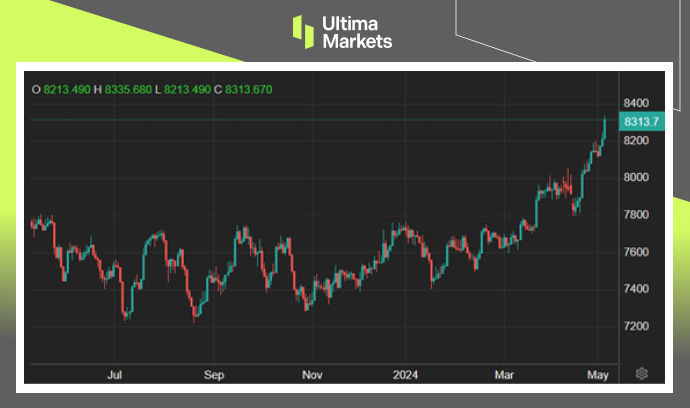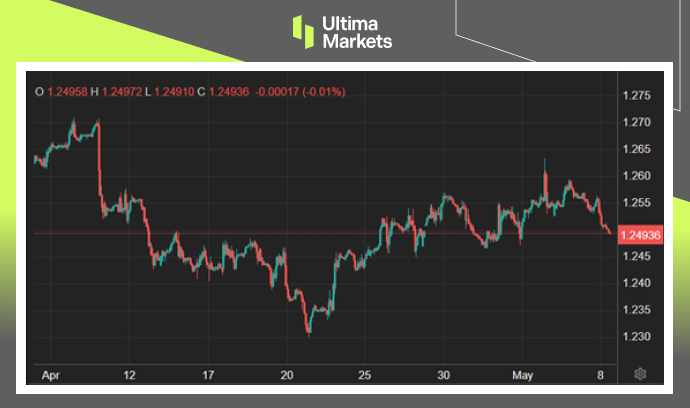Important Information
This website is managed by Ultima Markets’ international entities, and it’s important to emphasise that they are not subject to regulation by the FCA in the UK. Therefore, you must understand that you will not have the FCA’s protection when investing through this website – for example:
- You will not be guaranteed Negative Balance Protection
- You will not be protected by FCA’s leverage restrictions
- You will not have the right to settle disputes via the Financial Ombudsman Service (FOS)
- You will not be protected by Financial Services Compensation Scheme (FSCS)
- Any monies deposited will not be afforded the protection required under the FCA Client Assets Sourcebook. The level of protection for your funds will be determined by the regulations of the relevant local regulator.
Note: UK clients are kindly invited to visit https://www.ultima-markets.co.uk/. Ultima Markets UK expects to begin onboarding UK clients in accordance with FCA regulatory requirements in 2026.
If you would like to proceed and visit this website, you acknowledge and confirm the following:
- 1.The website is owned by Ultima Markets’ international entities and not by Ultima Markets UK Ltd, which is regulated by the FCA.
- 2.Ultima Markets Limited, or any of the Ultima Markets international entities, are neither based in the UK nor licensed by the FCA.
- 3.You are accessing the website at your own initiative and have not been solicited by Ultima Markets Limited in any way.
- 4.Investing through this website does not grant you the protections provided by the FCA.
- 5.Should you choose to invest through this website or with any of the international Ultima Markets entities, you will be subject to the rules and regulations of the relevant international regulatory authorities, not the FCA.
Ultima Markets wants to make it clear that we are duly licensed and authorised to offer the services and financial derivative products listed on our website. Individuals accessing this website and registering a trading account do so entirely of their own volition and without prior solicitation.
By confirming your decision to proceed with entering the website, you hereby affirm that this decision was solely initiated by you, and no solicitation has been made by any Ultima Markets entity.
I confirm my intention to proceed and enter this website Please direct me to the website operated by Ultima Markets , regulated by the FCA in the United Kingdom
Ultima Markets App
Trade Anytime, Anywhere

FTSE 100 Reaches Record Peak, Market Eyeing BoE’s Rate Decision
The FTSE 100 had a strong performance on the trading day after the Early May Bank Holiday. It reached an intraday record peak of 8,335.68, representing a 1.49% climb. By the end of the session, the index closed at 8,313.67, marking a 1.22% gain for the day. The rise mirrored the previous two sessions’ increases seen across European equities, as the market enjoyed the anticipated interest rate reductions by leading global banks.
The prominent industrial mining sector emerged as one of the highest climbers, recovering from the previous week’s subpar performance. Fresnillo experienced a 3.3% jump, while Rio Tinto and Glencore experienced gains ranging from 3% to 2%, buoyed by China’s commitment to economic stimulus and interest rate cuts during its Labor holiday, which boosted morale for base and precious metals.
Property developers sensitive to rate shifts also exhibited strong performance; companies like Persimmon, Barrat, and British Land saw their shares go up from 2.8% to 3.5%, benefitting from the significant drop in Gilt yields that bode well for the mortgage demand forecast.
On the downside, BP’s shares fell by 1.3% following the revelation of lower-than-expected profits for the first quarter. Nevertheless, the continuation of its stock repurchase scheme helped mitigate a steeper drop during the trading day.

(FTSE 100 Index Yearly Chart)
The British pound traded around the $1.25 level, as investors closely watched the anticipated timing of interest rate cuts. While the Bank of England is expected to maintain rates unchanged during its upcoming May meeting, market participants are fully pricing in the first rate reduction in August instead of September. In April, BoE Governor Andrew Bailey expressed optimism, noting that British inflation appeared on track to meet the 2% target. UK inflation fell to 3.2% in March 2024, the lowest rate since September 2021, down from 3.4% in the previous month. The headline inflation had reached its peak of 11.2% in October 2022.

(GBPUSD Monthly Chart)
Disclaimer
Comments, news, research, analysis, price, and all information contained in the article only serve as general information for readers and do not suggest any advice. Ultima Markets has taken reasonable measures to provide up-to-date information, but cannot guarantee accuracy, and may modify without notice. Ultima Markets will not be responsible for any loss incurred due to the application of the information provided.
Why Trade Metals & Commodities with Ultima Markets?
Ultima Markets provides the foremost competitive cost and exchange environment for prevalent commodities worldwide.
Start TradingMonitoring the market on the go
Markets are susceptible to changes in supply and demand
Attractive to investors only interested in price speculation
Deep and diverse liquidity with no hidden fees
No dealing desk and no requotes
Fast execution via Equinix NY4 server









